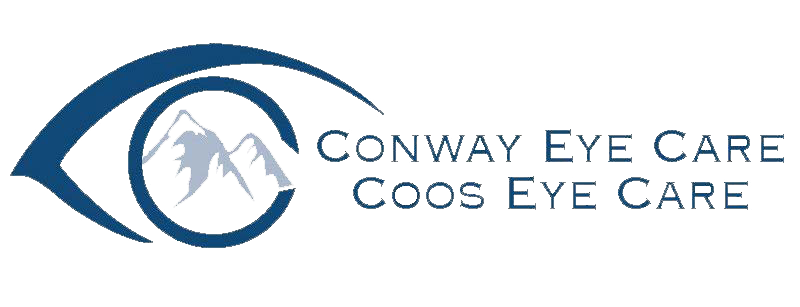Doctors and scientists are confirming what your mother told you, that you are what you eat. As it turns out, a healthy diet rich in certain nutrients can have a positive effect on your vision health. Researchers have found that the eyes in particular need—and sometimes even stockpile—certain vitamins to maintain healthy tissue.
Age-Related Eye Disease Study (AREDS)
Recent vision research has indicated a direct link between nutrients and eye health. The Age-Related Eye Disease Study (AREDS) is a major clinical trial sponsored by the National Eye Institute, one of the National Institutes of Health. The study was designed to examine the effects of high doses of antioxidents and zinc on the progression of these eye diseases, age-related macular degeneration (AMD) and cataracts.
The study showed that the AREDS supplement formula significantly reduced the risk and progression of age-related macular degeneration and associated vision loss. There was no significant effect of the formula on cataracts. The supplement formula is comprised of higher doses of antioxidents than are found in most multivitamins, and patients should discuss the AREDS formulation with their doctors.
Several nutrients were included in the first AREDS study, and some have been added to a second study called AREDS2, being conducted at present. Researchers are looking for 4,000 volunteers for the study between the ages of 50 and 85 who have Age-related Macular Degeneration. For more information, visit this link on the National Eye Institute website: http://www.nei.nih.gov/areds2/ and discuss whether you might be a good candidate for the study.
If you’re interested in enjoying some of the benefits these nutrients can offer your eyes, we’ve reviewed the AREDS ingredients and other nutrients believed to promote eye health below, and included the natural food sources for each nutrient.
Omega-3 Fatty Acids
These oils have been widely studied for their heart health benefits. Certain omega-3 fatty acids that are found in fish like salmon have the most influence in the eyes. One such substance, docosahexaenoic acid (DHA), is found in high concentrations in the retina and a second fatty acid, eicosapentaenoic acid (EPA), is necessary for the production of DHA. Some studies have shown that increased consumption of foods with these two fatty acids may reduce the occurrence of dry eye by as much as 17%. Dry eye is a condition that affects primarily post-menopausal women and is a result of the eyes not producing enough oily lubricant in tears.
Omega-3 fatty acids are found in fatty fish, such as salmon, mackerel, herring, or sardines. Vitamin supplements containing these nutrients are available as well.
Vitamin C
Vitamin C or ascorbic acid helps promote healthy tissue in nearly every part of the body, including capillaries, teeth, gums and iron absorption. Vitamin C is found in high concentrations in eye tissues, and has been shown to reduce the development of cataracts. Vitamin C is also one of the essential components of the AREDS supplement developed to reduce the progression of macular degeneration.
Vitamin C is found in citrus, strawberries and other fruits and vegetables.
Vitamin E
This antioxidant is most potent in its natural food form. Vitamin E is thought to help fight the breakdown of healthy tissue by free radicals. Vitamin E plays a significant role in the health of cells and the immune system. Our bodies do not make vitamin E, so including vitamin E-rich foods are important to a vision healthy diet. Vitamin E is also a component to the AREDS supplement.
Vitamin E is found in almonds, peanuts, sunflower seeds, wheat germ, sweet potatoes and vegetable oils.
Lutein & Zeaxanthin
Lutein and zeaxanthin are nutrients called carotenoids that filter harmful wavelengths of light and act as antioxidants, protecting and maintaining healthy cells in the eye. Of the hundreds of carotenoids found in nature, only these two are desposited in high quantities in the retina of the eye, where macular degeneration occurs. Diet is the only way to add lutein and zeaxanthin to the body, which does not synthesize them. These two substances were not part of the initial AREDS supplement but have been added to the formula as part of a second study.
Lutein and zeaxanthin are found in dark green leafy vegetables such as Romaine lettuce, kale or spinach, corn, peas, broccoli, eggs and oranges.
Zinc
Zinc is an essential trace mineral that helps to transport vitamin A from the liver to the retina in the eye to produce melanin. Melanin is the pigment that helps to protect the eye and the skin from ultraviolet light damage. Zinc is another element that is highly concentrated in the eye in both the retina and in the tiny blood vessels underneath the retina. Deficiencies in zinc can lead to poor night vision and cataracts. It too is included in the AREDS supplement. Zinc is often paired with a copper supplement because it can interfere with copper absorption.
Zinc is found in many foods, including oysters, beef, lobster, pork, yogurt, salmon, eggs, and milk.
The bottom line on vision nutrition is to include a variety of foods that include these beneficial nutrients to maintain healthy eyes. Even more amazing is how the nutrients such as those in the AREDS study can slow the progression of certain diseases of the eyes. At your annual examination, your eye doctor can help you understand what dietary steps you might take to keep your eyes healthy for a long time to come.

